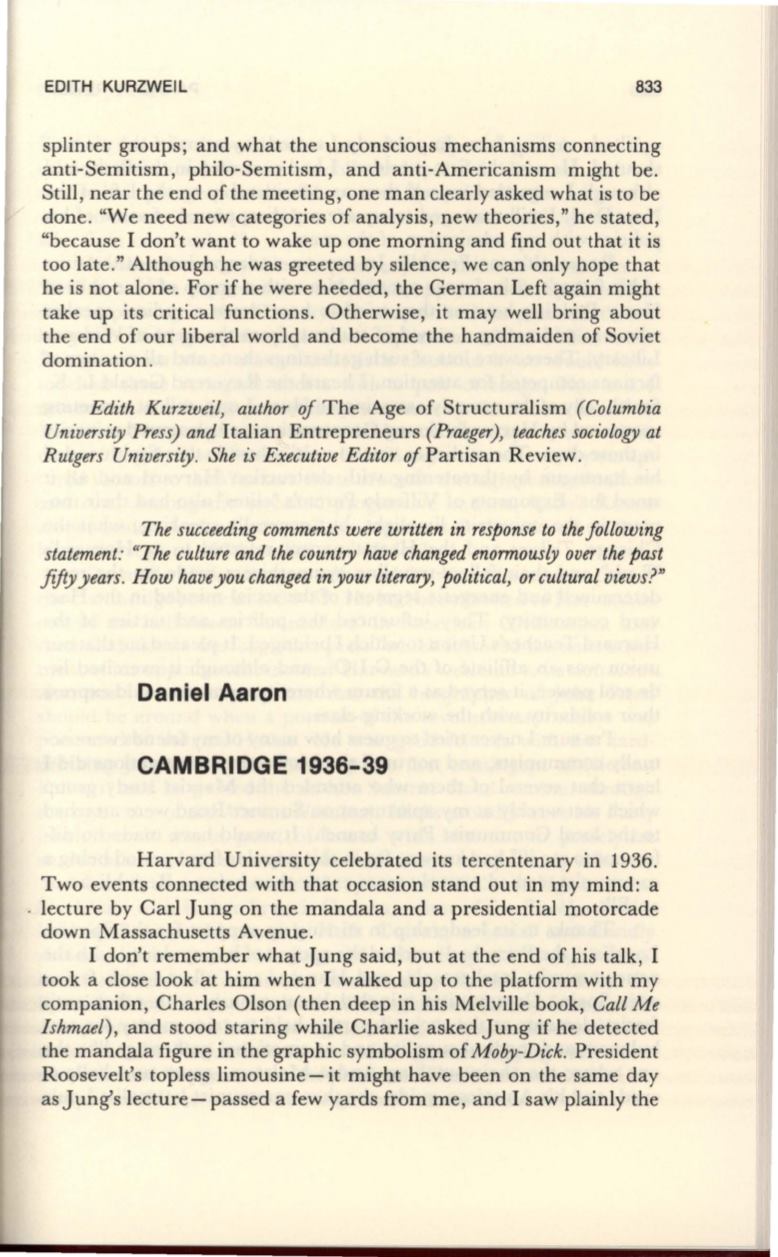
EDITH KURZWEIL
833
splinter groups; and what the unconscious mechanisms connecting
anti-Semitism, philo-Semitism, and anti-Americanism might be.
Still, near the end of the meeting, one man clearly asked what is to be
done. "We need new categories of analysis, new theories," he stated,
"because I don't want to wake up one morning and find out that it is
too late." Although he was greeted by silence, we can only hope that
he is not alone . For if he were heeded, the German Left again might
take up its critical functions. Otherwise, it may well bring about
the end of our liberal world and become the handmaiden of Soviet
domination.
Edith Kurzweil, author of
The Age of Structuralism
(Columbia
University Press) and
Italian Entrepreneurs
(Praeger), teaches sociology at
Rutgers University. She is Executive Editor
of
Partisan Review.
The succeeding comments were written in response to the following
statement: "The culture and the country have changed enormously over the past
fifty years. How haveyou changed in your literary, political, or cultural views?"
Daniel Aaron
CAMBRIDGE 1936-39
Harvard University celebrated its tercentenary in 1936.
Two events connected with that occasion stand out in my mind: a
lecture by Carl Jung on the mandala and a presidential motorcade
down Massachusetts Avenue.
I don't remember what J ung said, but at the end of his talk, I
took a close look at him when I walked up to the platform with my
companion, Charles Olson (then deep in his Melville book,
Call Me
Ishmael),
and stood staring while Charlie asked J ung if he detected
the mandala figure in the graphic symbolism of
Moby-Dick.
President
Roosevelt's topless limousine- it might have been on the same day
asjung's lecture-passed a few yards from me, and I saw plainly the


